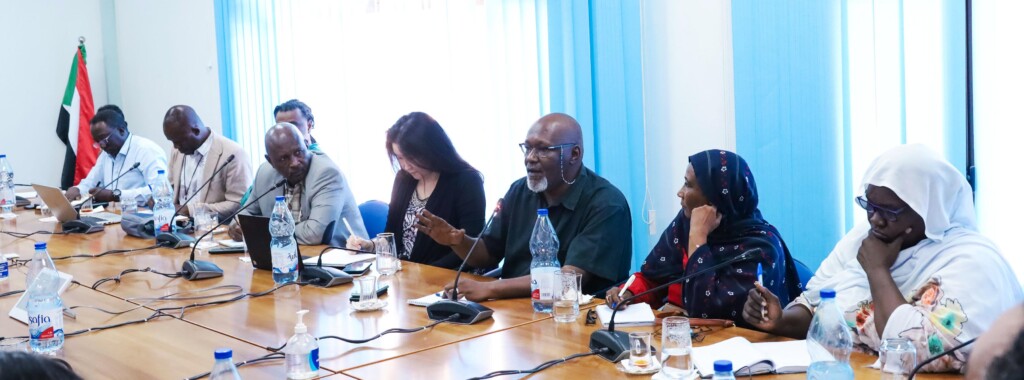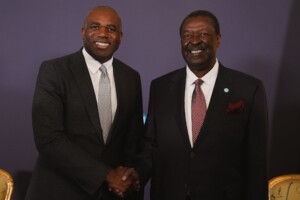Trilateral Mechanism for Sudan: Conference on transitional justice to begin on Saturday

Trilateral Mechanism conference in Khartoum (Photo: UNITAMS)
KHARTOUM –
UN Integrated Transition Assistance Mission in Sudan (UNITAMS), African Union (AU), Intergovernmental Authority on Development (IGAD) trilateral mechanism for Sudan yesterday announced that the fourth of the five dialogue conferences agreed on in the Framework Agreement with the military on December 5 last year, on justice and transitional justice, will be launched on Saturday. Regional workshops will be held in Greater Darfur, Kordofan, Blue Nile, East, North, central Sudan, and Khartoum, to be followed by a national conference in Khartoum.
The Mechanism said in a statement yesterday that it had agreed with Sudan’s High Committee for Justice and Transitional Justice to launch transitional justice dialogues led by stakeholders on March 11.
The High Committee for Transitional Justice includes civil society organisations, national experts, and the more than 40 signatories to the December 5 Framework Agreement.
Khaled Omar Yousef, spokesperson for the current political process that is to lead to the withdrawal of the military from power and the formation of a new civilian government of technocrats, told Radio Dabanga that the workshops will start in six states on Saturday and end their work on Tuesday.
The National Conference for Transitional Justice will be held in Khartoum immediately after completing the regional workshops.
According to journalist and political analyst Ashraf Abdelaziz, the transitional justice workshops that will start Saturday must be considered an important progress in the course of the Framework Agreement, indicating that transitional justice is considered one of the most important pillars of transition issues, and it is one of the deferred issues that were supposed to be discussed before signing the agreement, but it was postponed due to its sensitivity.
He explained, in an interview with Radio Dabanga, that this issue is one of the most important demands of the revolutionaries with regard to achieving the goals of the glorious December revolution, subject to the situation moving forward by overcoming the issue of justice, “especially since the mainstream Forces for Freedom and Change-Central Council (FFC-CC) refuse to in the military component in this field”.
He said, “If there is no space to find a third way out, this may be one of the main obstacles.” He continued, “In my estimation, everyone is open to making real concessions and overcoming obstinate positions to reach a final agreement.”
In late January, the Framework Agreement signatories, together with the Trilateral Mechanism decided to postpone two of the five conferences on crucial issues to agree on with the military: (transitional) justice and reform of the (para)military and security institutions in the country.
Forces for Freedom and Change-Central Council
Shehab Ibrahim, spokesperson for the FFC-CC, told Radio Dabanga that the “five issues” face obstacles and challenges and need sufficient time to complete them, denying the slow pace of the political process.
“The five issues are foundational, which requires the involvement of many parties,” he said. “Ending the coup is not an easy matter, which requires the involvement of many stakeholders.”
Mid-January, the FFC-CC said it expected the signing of the Final Agreement and the formation of a new government within three weeks.











 and then
and then